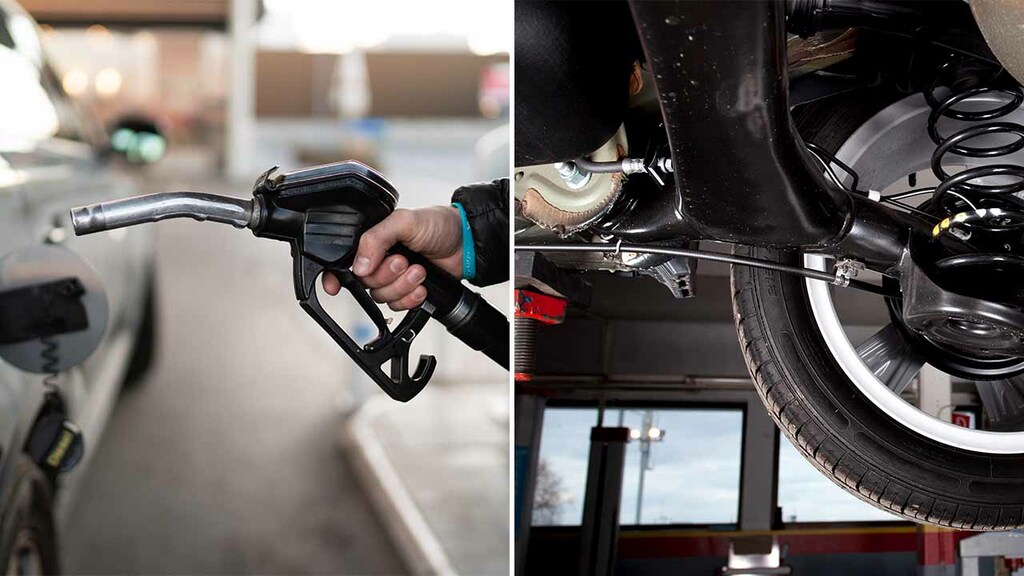As a business in the fleet industry, understanding and managing your fleet’s total cost of ownership (TCO) is crucial for long-term success. Fleet TCO is the total cost of owning and operating a fleet of vehicles over their lifetime, and it includes all expenses associated with the vehicles, such as purchase price, fuel costs, maintenance and repair costs, insurance and last but not, least taxation cost not included in the lease price.
Properly managing TCO can help businesses reduce costs, increase efficiency, and improve profitability. Our expertise in the fleet industry and international vehicle taxation can help businesses understand and manage their TCO, ultimately helping them achieve their business goals.
In this article, we’ll provide an overview of fleet total cost of ownership and discuss how businesses can optimise their TCO.
The Key to Understanding Your Fleet Total Cost of Ownership

To effectively manage TCO, businesses must first understand the factors that contribute to it. Fleet TCO is influenced by a variety of factors, including vehicle purchase price, fuel costs, maintenance and repair costs, insurance and importantly vehicle taxation cost. It’s essential for businesses to track and calculate TCO accurately to identify cost drivers and areas for improvement.
This is where data is key an be invaluable. Our team of experts can help businesses analyse their TCO data and identify areas for improvement. By taking a data-driven approach to TCO management, businesses can make informed decisions and optimize their fleet operations for maximum efficiency and cost savings.
Furthermore, we can assist to understand the impact of local car taxation and the underlying calculation methods so you get a complete TCO and insights on how to positively influence your fleet taxation cost.
How to Understand TCO
Understanding TCO is crucial for effective fleet management. Analysing trends in the different elements of the TCO can be a basis for active effective fleet management and a fleet strategy to optimise use of trends or counter negative effects on TCO.
The TCO calculation process involves assessing all the costs associated with owning and operating a fleet of vehicles over their lifetime. To accurately calculate TCO, businesses must consider all the costs associated with their vehicles, including direct and indirect costs.
How to Optimize Your Vehicle Selection Policy
One of the most significant factors that contribute to fleet TCO is the selection of vehicles. Choosing the right vehicles and the correct powertrains for your fleet can help businesses reduce costs and increase efficiency. However, selecting the right vehicles and powertrains can be challenging, given the many factors that need to be considered, including vehicle type, fuel economy, maintenance costs, and more.
With the help of consultancy services, businesses can optimize their vehicle selection policy and select the vehicles that are best suited for their specific needs. Our team can help businesses analyse data on vehicle performance, fuel efficiency, and maintenance costs to identify the most cost-effective options. By making informed decisions about vehicle selection, businesses can reduce TCO and improve their bottom line.
How to Make the Move from Total Cost of Ownership to Total Cost of Mobility
Total Cost of Mobility (TCM) is an emerging concept in the fleet industry that goes beyond TCO to consider the broader implications of fleet management. TCM considers not only the costs of owning and operating a fleet of vehicles but also the costs associated with alternative modes of transportation, such as public transportation, car-sharing services, and more.
By taking a TCM approach (including the initial TCO calculation), businesses can gain a more comprehensive understanding of their mobility costs and make more informed decisions about fleet management. TCM analysis can help businesses identify opportunities to reduce costs, increase efficiency, and promote sustainability.
We help businesses make the move from TCO to TCM. Our team can analyse data on various mobility options and provide recommendations on how businesses can optimize their mobility costs for maximum efficiency and sustainability.
How Fleet Strategy and TCO Work Together
TCO is an essential component of any fleet strategy. By accurately tracking and managing TCO over time, businesses can make informed decisions about fleet operations and optimize their operations for maximum efficiency and cost savings.
Effective fleet strategy involves setting clear goals and objectives and developing a plan to achieve them. With the help of consultancy services, businesses can develop a fleet strategy that aligns with their business goals and maximizes efficiency and cost savings. Our team can analyse data on vehicle performance, maintenance costs, and more to develop a strategy that is tailored to your specific needs.
In summary, TCO is a crucial component of fleet management that businesses cannot afford to overlook. With the help of our consultancy services, businesses can accurately calculate TCO, optimise their vehicle selection policy, make the move to TCM, and develop a fleet strategy that maximises efficiency and cost savings.



